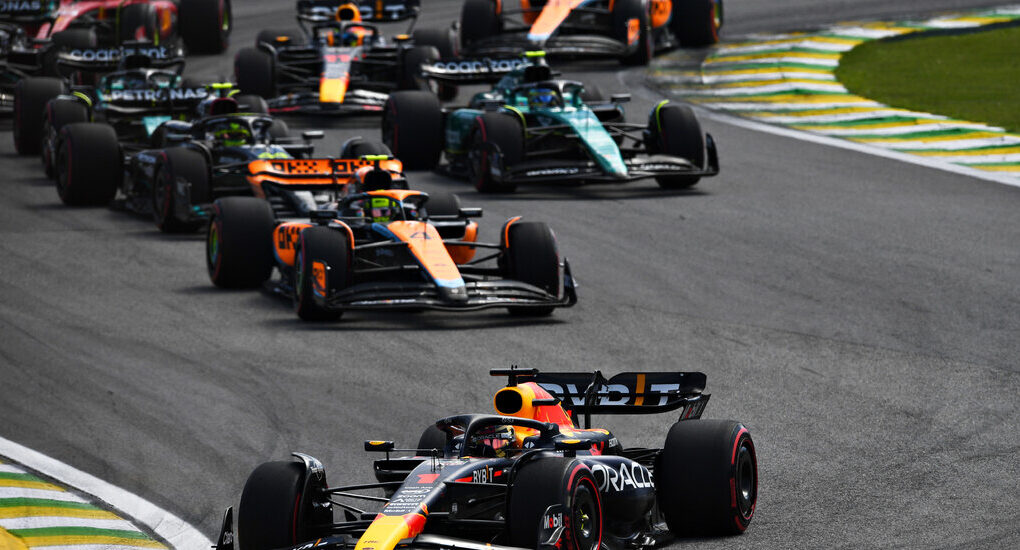“It’d be wrong to just leave it alone as our opposition are getting a bit closer,” said Paul Monaghan, chief engineer of Red Bull, when discussing its car in São Paulo in November.
“It perhaps wouldn’t surprise you,” he said, to learn that the 2024 car will be “an evolution of the current car. It’d be a bit foolish to just throw this concept away, but equally we’ve got to make some progress and find some lap time, as if our opposition makes a step we’d better have a bigger step. But it carries over a lot of the lessons and benefits of the current car, and come Bahrain next year we’ll see if we’ve done a good enough job.”
Verstappen, too, sees room for improvement in 2024.
“We are also working on our car to try and make it better,” he said. “I think we know our weaknesses, as well in the car. And that’s what we’ll of course try to work on, plus, of course, trying to make our strengths even stronger.
“In general, on street circuits, I think we are struggling a bit more. Low speed is definitely not our strongest point in the car; bumps, curbs as well. So that’s definitely a big area where we can improve.”
Recent Formula 1 history shows championship wins turn into dynasties. Michael Schumacher and Ferrari won five successive titles in the early 2000s, Sebastian Vettel won four in a row with Red Bull in the early 2010s, before Lewis Hamilton claimed six from 2014 through 2020 for Mercedes. Verstappen is now on a streak of three straight.
“Red Bull won by 17 seconds and they’ve not touched the car since August or July,” said Hamilton, a winner of 103 Grands Prix, after finishing ninth at the season-closing Abu Dhabi Grand Prix. “So you can pretty much guess where they’re going to be next year.”



